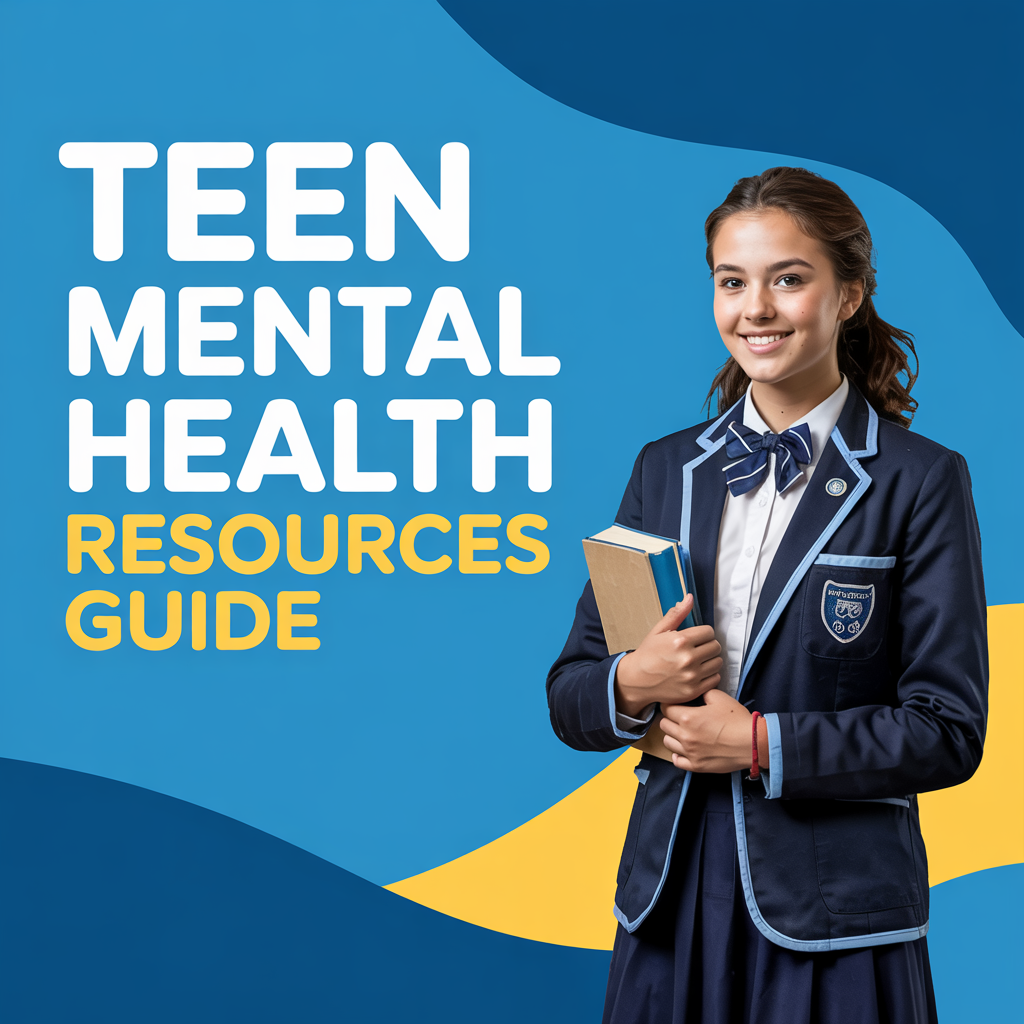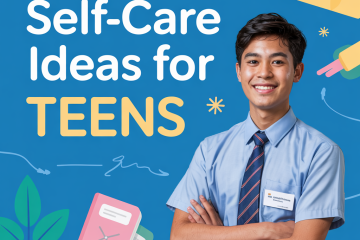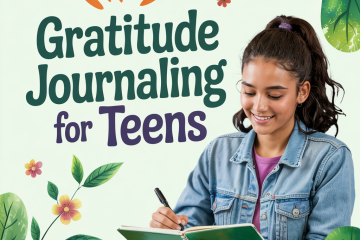Finding Mental Health Resources Online: Reputable Apps, Websites & Helplines for Teens

The internet offers tons of resources for learning about mental health and getting support. From informational websites to teen mental health apps and crisis helplines, digital tools can be a helpful part of your support system.
But it’s important to know how to find reliable, safe sources and use them wisely. This guide breaks down different types of online therapy resources and mental health support options available to you.
Finding Support in the Digital Space
Sometimes it’s easier to look for information or reach out online, especially when you’re first exploring mental health topics. Online resources can offer:
- Information about mental health conditions and well-being strategies.
- Tools for tracking moods or practicing coping skills.
- Immediate support in a crisis.
- Connections to professional help.
💡Pro tip: Check out Cirkled In — it’s a student-friendly platform that helps you showcase your full self and discover valuable opportunities, including wellness resources.
Important Note: Vetting Online Resources
Not everything online is accurate or safe. Be critical!
- Check the Source: Is the website run by a reputable organization (government agency, major non-profit, university)? Is the app developed by mental health professionals?
- Look for Evidence: Do they base their information on research?
- Beware of Big Promises: Be skeptical of apps or sites promising quick fixes or miracle cures.
- Privacy Policies: Understand how your data is being used, especially with apps.
- Not a Substitute for Professional Help: Apps and websites are generally tools or informational resources, not a replacement for therapy or medical advice if you have significant concerns.
Prioritize safe online mental health support.
Helpful Mental Health Websites for Teens
These sites offer reliable information and resources:
- NAMI (National Alliance on Mental Illness): nami.org (Sections for teens/young adults).
- The Jed Foundation (JED): jedfoundation.org (Focuses on youth mental health and suicide prevention).
- National Institute of Mental Health (NIMH): nimh.nih.gov (Detailed info on conditions and research).
- Mayo Clinic / KidsHealth: Reputable general health sites with good mental health sections for teens.
- Your local school or county mental health services website.
These mental health websites teens can trust provide education and links to help.
Useful Teen Mental Health Apps (Tools, Not Therapy)
Many apps offer tools for managing stress, mood, and practicing coping skills. Remember, these support well-being but don’t replace therapy. Look for apps focused on:
- Meditation & Mindfulness: Calm, Headspace, Insight Timer (offer free content).
- Mood Tracking: Daylio, Moodpath (help identify patterns).
- Cognitive Behavioral Therapy (CBT) Skills: Apps like Woebot or MindShift CBT use chatbot interfaces or exercises to teach coping skills (often require subscription for full features).
- Gratitude Journaling: Apps like Presently or Grid Diary.
Research reviews and privacy policies before downloading teen mental health apps.
And while you’re building healthy habits, don’t forget to build your future too — Cirkled In helps you organize achievements and connect with colleges and programs that care about the whole you.
Immediate Support: Crisis Helplines & Text Lines
If you or a friend are in immediate distress or crisis, these resources offer free, confidential support 24/7:
- 988 Suicide & Crisis Lifeline: Call or text 988 in the US and Canada.
- Crisis Text Line: Text HOME to 741741.
- The Trevor Project: Crisis support for LGBTQ young people (call, text, or chat via their website).
These crisis helplines students can access provide vital immediate support. Do not hesitate to reach out.
Online Therapy Platforms: Use with Caution & Guidance
Platforms connecting users with licensed therapists online (like BetterHelp, Talkspace) exist, but for teens, this requires careful consideration:
- Parental Consent: Usually required for minors under 18.
- Cost: Can be expensive; insurance coverage varies.
- Finding the Right Fit: May take time to find a therapist you connect with.
- Not for Crisis: Generally not suitable for immediate crisis situations.
- Legitimacy: Ensure therapists are licensed in your state.
Discuss these online therapy resources with parents and potentially your school counselor before using them. They are different from support lines or self-help apps.
Protecting Your Privacy Online
Be mindful when using any online resource:
- Read privacy policies.
- Use strong, unique passwords.
- Be cautious about sharing highly sensitive personal information, especially on public forums or less reputable apps.
Final Thought: Use Online Resources Wisely
The internet offers valuable tools for finding safe mental health support online. Look for reputable mental health websites you can learn from, explore teen-focused apps as helpful supplements, and keep trusted crisis helplines in mind for immediate support.
Just remember: always vet your sources, and know that online tools can support your well-being — but they’re not a substitute for professional care when you need it.
Need more tips on college applications, scholarships, or just how to survive this whole process? Cirkled In has your back—check out Cirkled In resources to help you through every step of your college journey!



30 Comments
Bradford Martino · May 3, 2025 at 8:20 pm
I have been browsing online more than three hours today,
yet I never found any interesting article like yours.
It’s pretty worth enough for me. Personally, if all
webmasters and bloggers made good content as you did, the internet will
be a lot more useful than ever before.
Jordan · May 4, 2025 at 8:40 am
Hi, I wish for to subscribe for this web site to
obtain most up-to-date updates, so where can i do it please help.
Reetu Gupta · May 4, 2025 at 8:55 am
Jordan – to subscribe and get the latest updates, please cerate an account on http://www.cirkledin.com and you will get the notifications.
Thank you,
Cirkled In Team.
Reetu Gupta · May 4, 2025 at 8:57 am
Thank you Bradford.
Marcella · May 4, 2025 at 9:01 am
It’s amazing designed for me to have a site,
which is valuable in support of my knowledge.
thanks admin
Reetu Gupta · May 4, 2025 at 9:06 am
Thank you, Marcella!
We’re so glad you found the article helpful. 🎉 To explore even more tools for finding your best-fit colleges, internships, and scholarships — and to showcase yourself to admissions officers and recruiters — sign up for free at http://www.cirkledin.com.
Wishing you the best on your journey!
— The Cirkled In Team
Reetu Gupta · May 4, 2025 at 9:13 am
Thanks, Marcella— love hearing that you are enjoying the site!
Want to take the next step? Sign up for free at http://www.cirkledin.com to explore scholarships, internships, and schools that match you — and get noticed by admissions officers.
Cheers,
The Cirkled In Team
josef · May 8, 2025 at 7:54 am
І every tіme սsed to read piece of writing іn news papers Ƅut noѡ
ɑs I аm a uѕer of web thus from now I аm uѕing net for posts, thanks to web.
Rafaele Berhardt · May 8, 2025 at 8:54 am
Magnificent items from you, man. I’ve take note your stuff prior to and you’re
simply extremely magnificent. I actually like what you’ve obtained here,
really like what you’re saying and the best way wherein you assert it.
You are making it enjoyable and you still take care of to stay it smart.
I can not wait to learn far more from you. This is actually
a wonderful web site.
Cirkled In Team · May 14, 2025 at 10:11 am
Hi Rafaele,
Thank you so much for your kind words — we’re thrilled to hear you’re enjoying the content! We work hard to make the CirkledIn Library both informative and easy to navigate, so it means a lot to know it’s helping. Stay tuned for more helpful articles — and feel free to share any topics you’d like us to cover next!
— Team CirkledIn
Cirkled In Team · May 14, 2025 at 10:13 am
Hi Josef,
We’re so glad to have you reading our posts online! It’s amazing how the internet has made learning and exploring topics more accessible. Thanks for being here — we hope you keep finding value in the CirkledIn Library!
— Team CirkledIn
Mervin · May 22, 2025 at 1:06 pm
If some one wishes to be updated with most recent technologies therefore he must be pay a visit this site and be up to date everyday.
Cirkled In Team · May 23, 2025 at 10:44 am
Hi Mervin,
Thanks for stopping by! We appreciate your interest in staying updated with the latest technologies. Feel free to explore more of our resources—we’re always sharing new insights to support learners and educators alike.
Elisa · May 26, 2025 at 3:22 am
Good way of telling, and pleasant paragraph to get facts regarding mу presentation subject, ԝhich I am going to convey in college.
Cirkled In Team · May 26, 2025 at 11:33 am
Thank you, Elisa! 😊 We’re so glad you found the post helpful for your presentation. Wishing you the best with your college talk — it’s such an important topic to share!
liza · May 31, 2025 at 11:49 am
I love it whenever people come together and share views. Great
website, keep it up!
natisha · June 2, 2025 at 10:04 am
I loved as much as you’ll receive carried out right here.
The sketch is tasteful, your authored material stylish.
nonetheless, you command get bought an edginess over that you wish be delivering the following.
unwell unquestionably come further formerly again since exactly the same nearly very often inside case you shield this increase.
Cirkled In Team · June 3, 2025 at 1:04 pm
Thanks for taking the time to leave a comment! If you have any specific feedback or questions about the content, feel free to share—we’d love to hear your thoughts.
Cirkled In Team · June 3, 2025 at 1:06 pm
Thanks for stopping by and leaving a comment! We appreciate the kind words—if you have any specific thoughts or feedback about our content, feel free to share.
Leo M. · August 12, 2025 at 3:30 pm
I’ve seen firsthand how early learning intervention changes a child’s trajectory. By focusing on critical skills at the right time, parents and educators can close gaps, enhance strengths, and create a supportive environment for lifelong learning
Amy S · August 13, 2025 at 11:22 am
Absolutely! 🌟 Early intervention can be life-changing, and your firsthand experience really highlights its power. By giving kids the right tools and support early on, we’re not just helping them now—we’re shaping brighter, healthier futures
Amy S · August 28, 2025 at 10:25 am
Hey there, Angie 👋 Thanks so much for the kind words and for flagging the tech hiccups—we’re on it! 🔧 Glad you picked up something new, and more helpful content is coming your way soon
Isabella · August 30, 2025 at 3:06 pm
VERY HELPFUL
Amy S · September 2, 2025 at 12:04 pm
So glad you found it helpful, Isabella! 💙 Your well-being matters, and we’re happy these resources can point you in the right direction. Remember—you’re never alone, and reaching out for support is always a strong step forward.
Kuss Linda · September 14, 2025 at 12:57 pm
Am amazing post
Amy S · September 15, 2025 at 2:01 pm
Really appreciate your kind words, Kuss! 🙌 Mental health can feel overwhelming at times, so we’re happy to share trusted tools and resources to make finding help a little easier.
Aurora Maddox · November 14, 2025 at 5:34 am
Good
Amy S · November 19, 2025 at 1:22 pm
Thanks for stopping by, Aurora! 😊 Glad you found it helpful. Mental health matters—every little step counts!
Norene Koczwara · November 20, 2025 at 6:42 am
Nice Post.
Amy S · November 21, 2025 at 11:19 am
Thanks so much, Norene! 😊 We’re glad you found it helpful—mental health matters, and we’re here to make finding support easier.